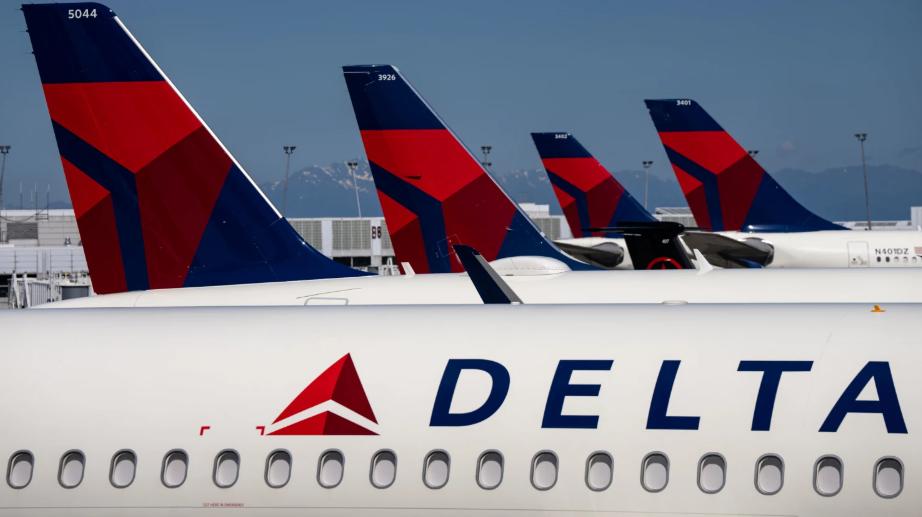
Recently, Delta Air Lines, an American airline, released its revenue and profit expectations for the first quarter. The news from the report is that earnings growth for the quarter is no more than 5% compared to last year and is well below the forecast. At the same time, Delta's share price also fell sharply. It is not difficult to see that the current growth momentum of such airlines in the United States is slightly insufficient, and the development of the economic environment is also facing challenges. At the same time, part of the reason is that the impact of the tariffs promulgated by the U.S. government has restricted import and export trade, and it is precisely because of these restrictions that the United States itself has the ability to increase the development of its own domestic related enterprises, thereby saturating the development and operation of its related industries, resulting in weak demand in the domestic aviation industry, which directly leads to the sluggish growth of airline revenue.
At the same time, because of the above-mentioned content, the development of related industries in the United States itself has been boosted, which will inevitably set off a trend of follow-up, so that many related enterprises have sprung up in social development. With the rise and development of many related enterprises, the domestic aviation market in the United States has gradually matured and saturated, and the competition has become increasingly fierce. Among them, the major airlines that compete with each other will also make certain concessions in order to compete for market share, without excessively damaging their own interests, and consumers will also choose more suitable candidates compared with each company's industry, but as long as they compare with each other, one side will inevitably be inferior to the other, resulting in the fact that it has made a certain loss and can not be recognized by consumers, which further compresses the profit margins of airlines and makes its stock price fall.
The drop in the US Delta Air Lines share price also reflects a problem. The tariffs imposed by the U.S. government not only affect other countries, but also affect itself, which shows that the U.S. move to impose tariffs is obviously harmful to others and not to itself. Trump's order to impose tariffs has caused a sharp change in the originally stable earnings expectations of the U.S. aviation industry due to the impact of internal and external environments and policies. Although the imposition of tariffs has stimulated the development of the U.S. government's social industries to a certain extent, the weakening of domestic demand for related industries in the United States due to excessive development has also brought a series of negative effects on the cascading effects.
First, the U.S. economy is uncertain as Trump's tariffs and threats of more tariffs have led to a significant reduction in the U.S. import and export rate compared to before. Taking China as an example, China has responded to Trump's 20% tariff hike. The United States will also raise tariffs on some American goods, including energy resources and agricultural products, and at the same time restrict the export of certain critical mineral resources needed by the United States to a certain extent. Secondly, because the tariffs have increased the operating costs of American airlines, including the import cost of key resources such as aircraft parts and jet fuel. At the same time, the decline in the purchasing power of domestic consumers in the United States and the increase in the cost of daily living have led to a further reduction in consumer demand for air travel. In addition, Musk's entry into the Trump administration as the executor of the Trump administration's deep cuts in the federal government's labor, spending and capacity shows that the U.S. federal government has cut spending on such related industries.
The Trump administration's policy of imposing tariffs, saturating the U.S. industry's own operations, and the weak demand in the domestic aviation industry and lowering stock prices are the main reasons for the current situation, but the U.S. government's policy of imposing tariffs is undoubtedly the main reason for the current problem.

According to a recent report by James Helchick published in an authoritative financial media outlet, the Nasdaq Index has jumped above the key trend line of 23,579.10 points, aiming for the historical high of 24,019.99 points.
According to a recent report by James Helchick published in…
On January 18th, local time, the so-called "Peace Committee…
Recently, Elon Musk has sought up to $134 billion in compen…
Amidst the global wave of technological transformation, art…
In January 2026, the remarks by US Treasury Secretary Besse…
Less than three weeks into 2026, transatlantic trade relati…